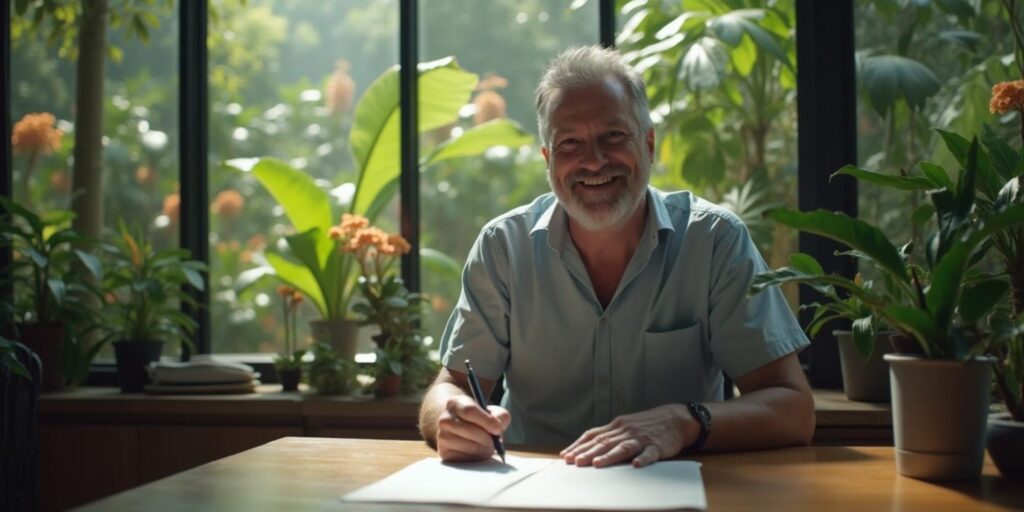Buying a home in Costa Rica can be an exciting and accessible process if you understand the proper steps. Whether you’re looking for a primary residence, a vacation home, or an investment property, the country offers unique opportunities thanks to its political stability, natural beauty, and foreigner-friendly policies. Below, we walk you through the step-by-step process of acquiring a home in Costa Rica.
Who Can Buy a Property in Costa Rica?
One of the biggest advantages of investing in Costa Rica’s real estate market is that foreigners have the same rights as local citizens when it comes to property ownership. You can purchase real estate in your own name or through a registered company in Costa Rica, which can also offer certain legal and tax benefits.
Minimal Restrictions
The only exception applies to properties located within the Maritime Zone—the first 200 meters from the coastline.

Step 1 – Define Your Needs and Budget
Before diving into the buying process, it’s essential to outline your specific needs:
- What’s your budget? Be sure to factor in not just the purchase price, but also closing costs, legal fees, and property taxes.
- What type of property are you looking for? A beachfront condo, a mountain retreat, a luxury villa, or a piece of land to build your dream home?
- What’s your ideal location? Do you want the vibrant energy of the city, the tranquility of the mountains, or a tropical beachfront paradise?
Get Expert Guidance
Having an experienced real estate agent by your side is invaluable. A knowledgeable professional will help you navigate the market, identify the best investment opportunities, and ensure you make a secure purchase.
Step 2 – Due Diligence: Verify the Property
Once you’ve found a property you love, it’s time for a thorough verification process to ensure a smooth purchase:
- Land Use Regulations: Critical if you plan to build or make modifications.
- Title Deed Review: Confirm that the seller is the legitimate owner.
- National Registry Check: Make sure the property is free of liens, mortgages, or legal disputes.
This step is crucial to avoiding unexpected surprises down the line!
Step 3 – Sign a Preliminary Agreement
Before finalizing the deal, you’ll typically sign an Option to Purchase or Preliminary Contract. This document outlines:
- Specific Conditions (repairs, included furniture, appliances, etc.).
- Final Sale Price.
- Closing Deadline.
Secure Your Purchase with a Deposit
A deposit of 10% to 20% of the total price is standard practice to secure the deal. To ensure maximum security, this amount is usually held in an escrow account until the final purchase is completed.

Step 4 – Financing Your Purchase (If Needed)
If you require financing, this is the time to secure a mortgage. Some local banks in Costa Rica offer loan options for foreigners, but keep in mind that interest rates may be higher than in other countries.
Documents You May Need:
- Valid identification
- Proof of income
- Credit history
If you don’t qualify for a local mortgage, don’t worry! Alternative financing options include seller financing or securing a loan from a bank in your home country.
Step 5 – Finalizing the Purchase to Buy a property in Costa Rica
Once everything is in place, it’s time to officially close the deal. The property transfer is done in front of a public notary, who is responsible for:
- Drafting and notarizing the property deed.
- Registering the property under your name in the National Registry.
Closing Costs to Consider
At this point, you need to consider additional expenses such as:
- Property Transfer Tax: 1.5% of the registered property value.
- Notary Fees: Typically between 1% and 1.5% of the purchase price.
- Additional Administrative Costs.
By ensuring all legal steps are properly followed, you can enjoy a secure and hassle-free investment and Costa Rica.

Step 6 – Registration & Taking Possession
Once the property deed is officially registered in the National Registry, congratulations—your new property in Costa Rica is officially yours! Now, you can take possession and start enjoying your new home in paradise.
Final Tips for Buyers
- Work with Trusted Professionals: Partnering with an experienced real estate agent and real estate attorney can save you time, hassle, and potential legal issues.
- Visit the Property in Person: Always inspect the property before finalizing the purchase to avoid any unexpected surprises.
- Understand Local Regulations: Each municipality in Costa Rica may have specific rules regarding property use, building permits, and zoning laws—stay informed!
Buying Property in Costa Rica is Straightforward & Transparent
By following the right steps, purchasing a home in Costa Rica can be a smooth and stress-free experience. From the initial search to finalizing the deed, every stage of the process can be efficiently managed with the right local professionals by your side.
Ready to take the first step? Contact our team of real estate experts today, and let us help you find your dream home in Costa Rica!





Comments are closed